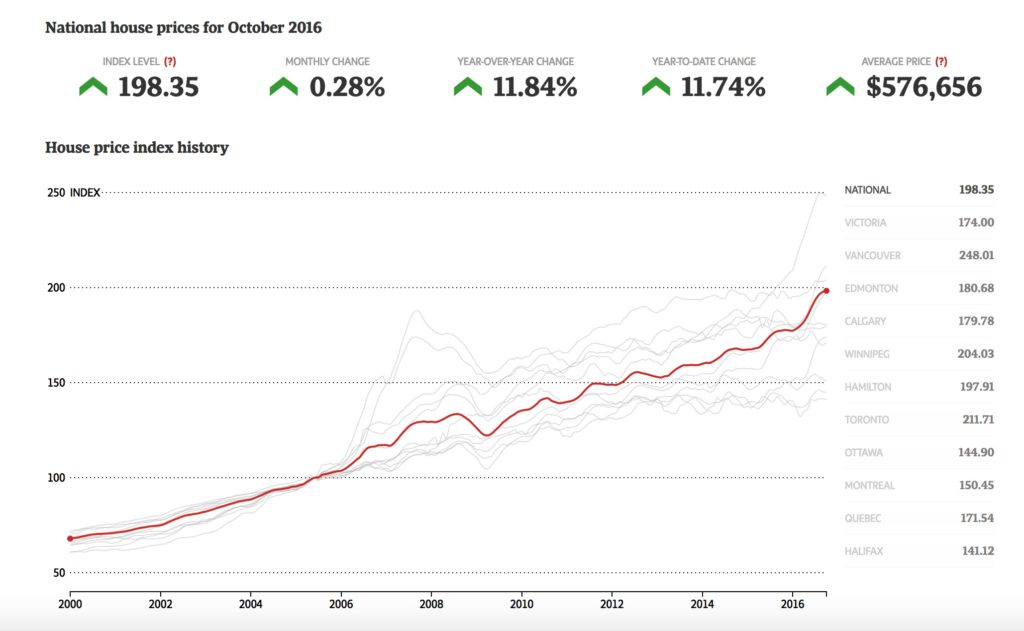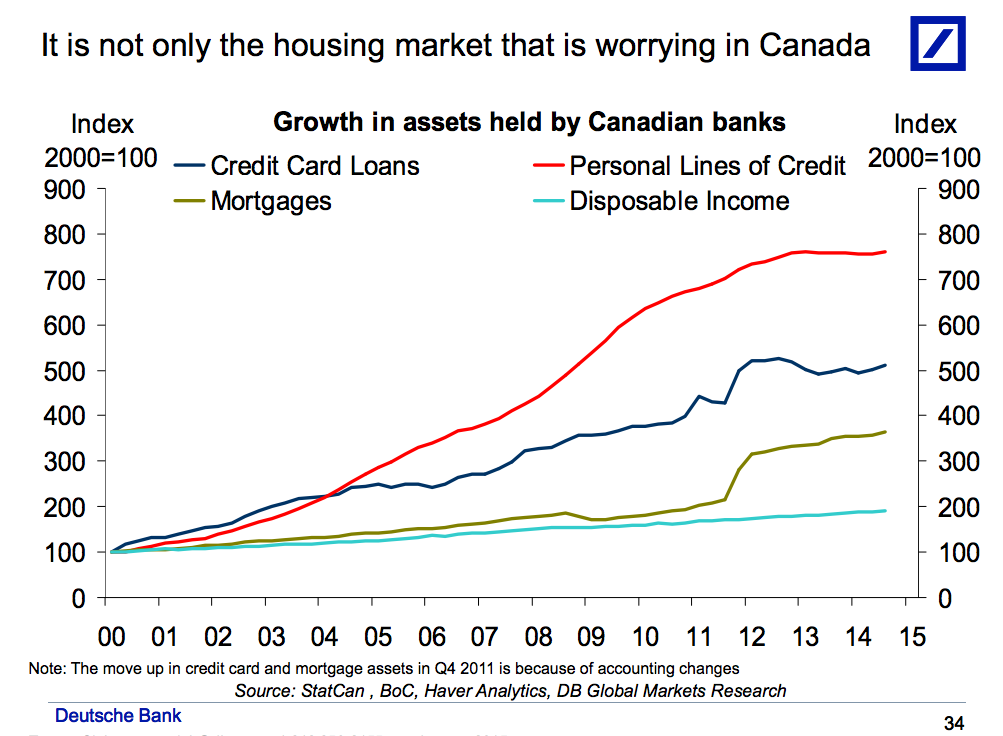Nationally the average home price in Canada is about $500,000. In the largest 11 cities, where the bulk of the population lives, the average is $576,000. As shown in this chart from the Globe and Mail, the average home price in these cities has risen more than 11% in the past year, doubled since 2005 and almost tripled since 2000. Sound reasonable?

Canadians pay for their housing costs out of after tax income, and Stats Can tells us that the median after tax income for Canadian families is $54,600 according to their latest survey. This table shows the before tax income levels for individuals and families, at the latest data.
Which brings us here: the chart that shows how Canadians have managed to keep consuming and pay for their tripling shelter costs over the past 16 years as their disposable incomes rose only modestly (aqua line at bottom). Debt of every kind has soared (other lines).

Which brings us to this story yesterday: Canadian banks could see ‘significant losses’ if the housing market turns. … or people lose jobs, or boomers start wanting to liquidate cash out of their housing and reduce their expenses, or rates rise just a percent or three:
Canada’s banking regulator warned on Monday that lenders could face significant losses if housing markets turn in the event of an economic downturn and emphasized the need for stringent underwriting practices.
Which bring us to the Canadian stock market (TSX 60 is 36% finance sector) and all the retirees, mutual funds and pensions who have trebled all their income-desperate-bets on this ‘can’t lose’ sector (along with real estate and REITs) over the past 5 years, as consumer credit went loco.
The cruel result of all this, is that those who are least risk tolerant and have no time to make back losses, are today the most risk exposed. What many thought was financial progress through QE mania the past few years, is really just a huge credit boomerang headed back to hit when Canada can least afford it.

